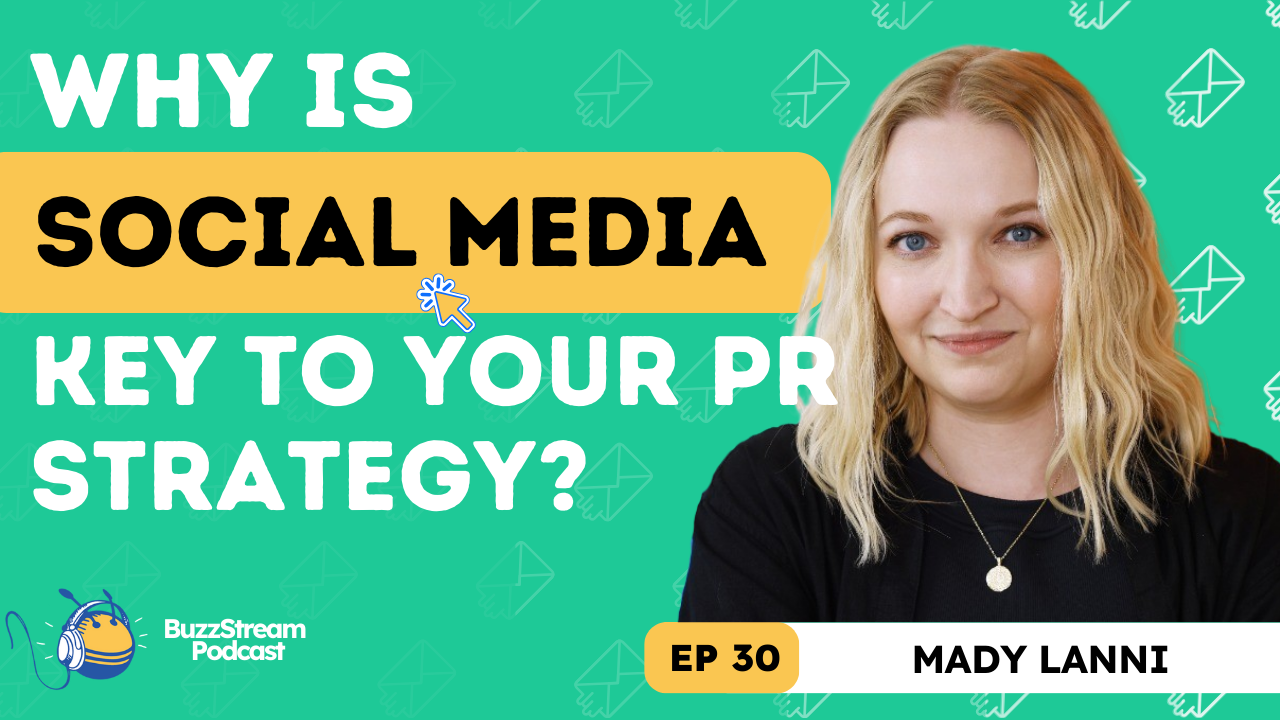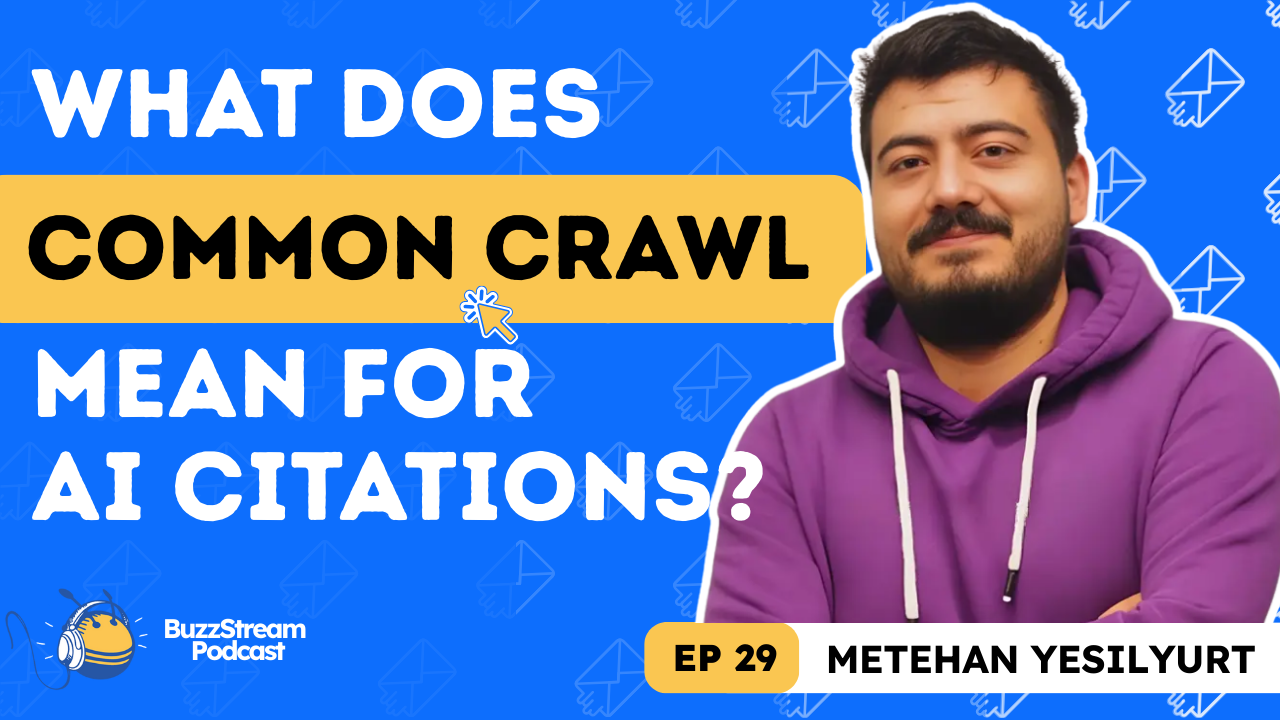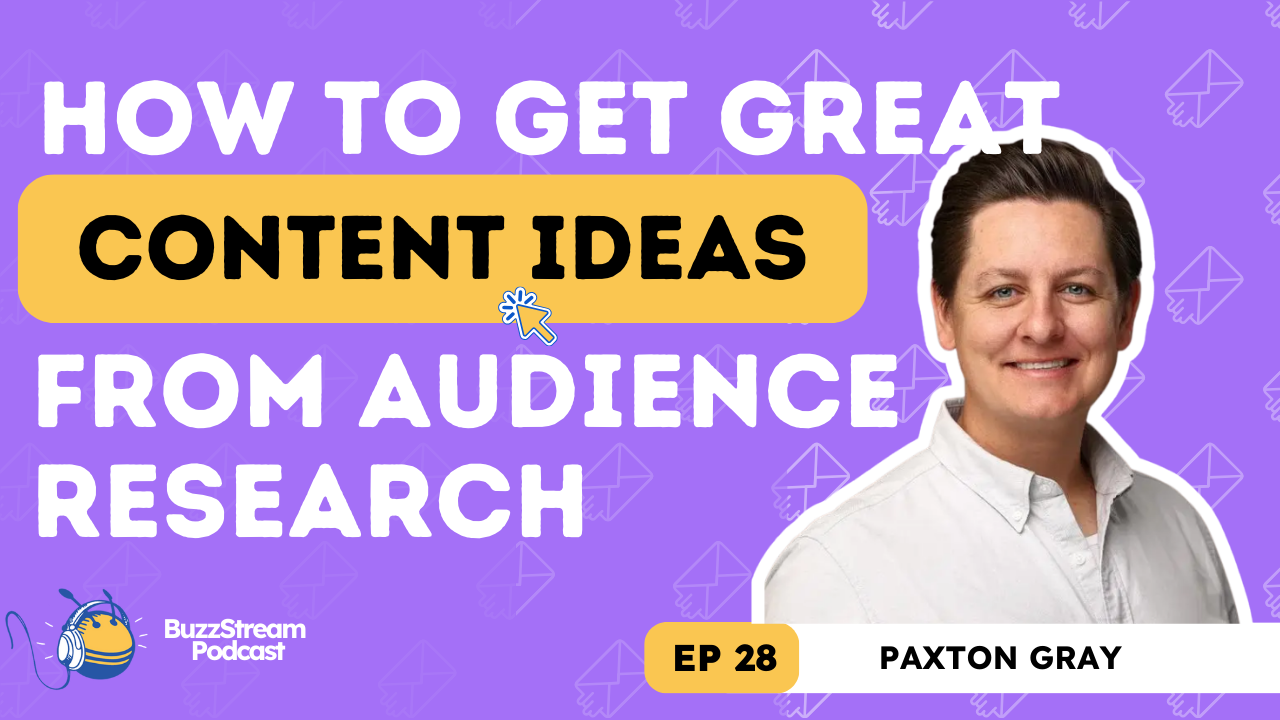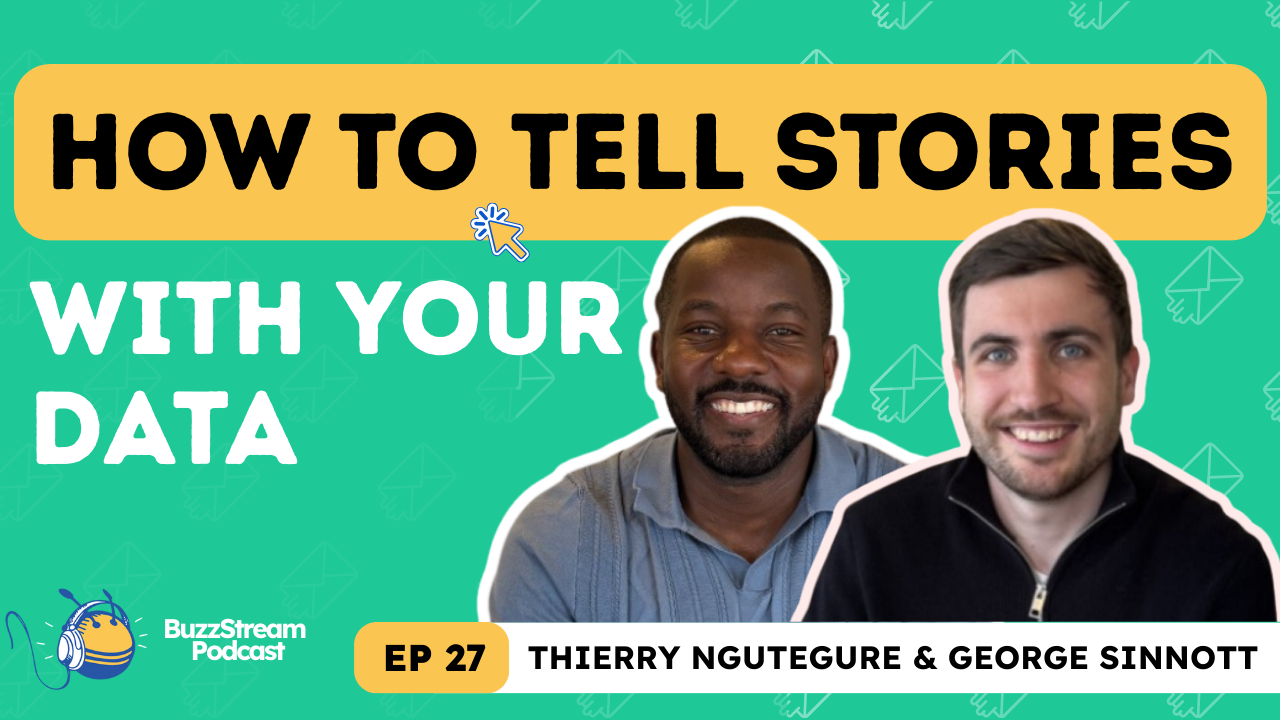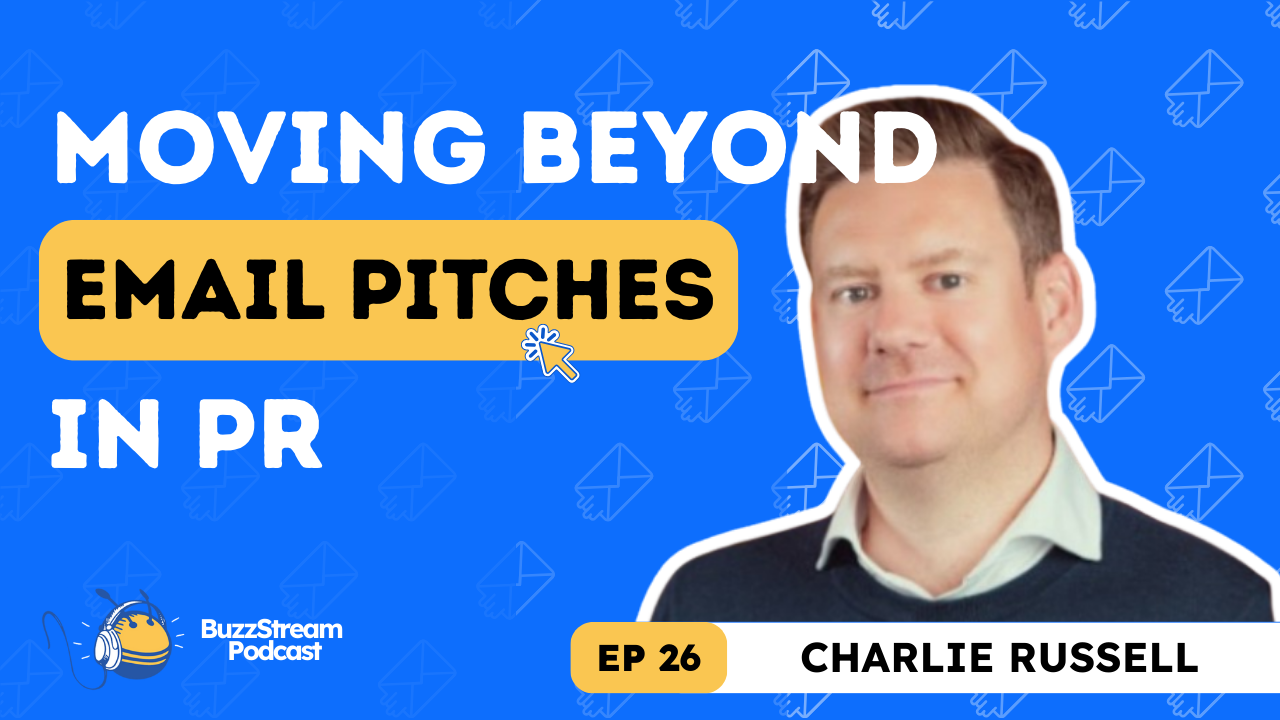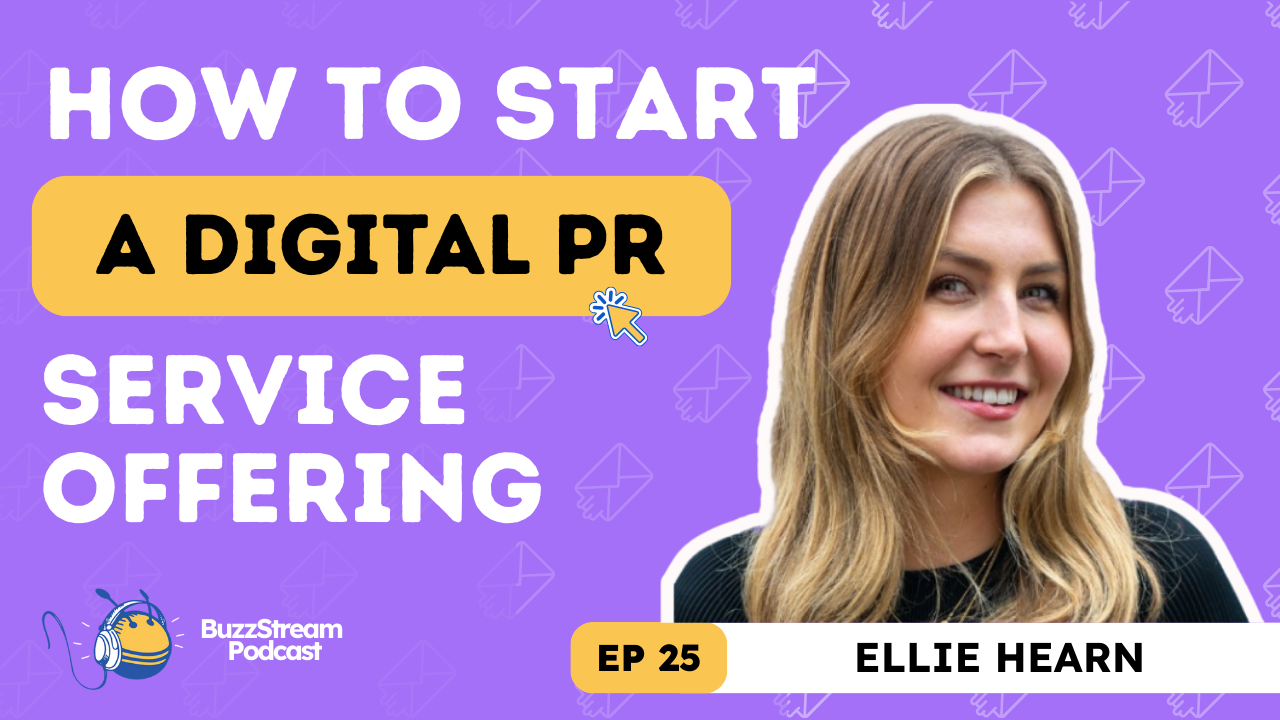Table of Contents
- Relevance Engineering blends AI, content strategy, UX, digital PR, and information retrieval to future-proof SEO.
- AI Overviews and chatbots generate synthetic queries; optimizing for these hidden queries boosts visibility.
- Links from relevant news/media sites still carry high value due to Google’s index stratification.
- Digital PR must shift from generic outreach to mathematically defined topical relevance.
- Short, specific paragraphs with factual data improve content extraction by language models.
- iPullRank’s Qforia tool reveals hidden AI queries, helping brands rank in generative search results.
Mike King is the founder of the SEO agency iPullRank and one of the sharpest minds in the SEO world. He has been at the forefront of breaking SEO news, such as the Google leak, and is leading the charge on how SEOs need to adapt their strategies to succeed in the AI era. As such, he’s a busy guy. So, I was honored that he took the time to chat with me on the podcast.
We mainly discuss his “Relevance Engineering” concept and its relationship to digital PR. However, because AI is changing so rapidly and it can easily feel overwhelming, I also picked Mike’s brain on how small businesses and SEOs should approach this broadly.

Resources Mentioned
We discussed a variety of videos and posts. Here are some:
How AI Mode Works and How SEO Can Prepare for the Future of Search
The Future of Search with iPullRank:A Recap Discussion of Google I/O 2025
Here’s a transcript of our chat:
Does this Google leak thing even matter in today’s world?
Mike King: Absolutely, it still matters.
However, the insight I was highlighting was that the position of something in Google’s index confers a different level of authority.
So they stratify the index into four different buckets.
There are three basic quality levels: high, medium, and low.
And the proxy for understanding that is like how much traffic and how many rankings a given page has that’s linking to you.
But then there’s another bucket that they call fresh docs, which is effectively the links you get from news and media sites and so on.
So they’re effectively saying, ‘Hey, all the news stuff needs to sit here because it’s more important.’
And so, what I’m saying is that if you’re getting links through your digital PR, which is usually from news outlets, those are considered higher-quality links.
And that’s why, you know, you’ve always seen big impact from getting that.
And that definitely still matters now because the way things work in these generative experiences is that they don’t just look at what ranks for the core query that the user types in, they generate a series of synthetic queries and figure out what pages rank for that.
Then they extract passages from that and feed all of that to the large language model.
And so, ranking is still a big part of this.
You getting mentioned in these news outlets, which again tend to rank quite highly, is a good thing to support you having more of those passages that are considered important and fed to those languages.
Can you explain Relevance Engineering for our listeners?
Mike King: From my perspective, it’s really an evolution of like where SEO needs to go.
So relevance engineering is the confluence of artificial intelligence, information retrieval, content strategy ux, and digital pr.
And notice I didn’t say SEO as one of those things. I’m talking about information retrieval, which is the computer science behind how search engine work. I feel that if you utilize SEO effectively, you’re essentially a power user of Google.
You understand what Google has told you, what the best practices are.
You know how to do those things.
Still, there’s a subset of people who have always taken things further, where they’ve really understood technology, they really understood how search engines actually work, you know what they’re actually doing.
So that you can basically have like a first principles perspective when a new algorithm update rolls out.
So, when you say ‘I was shellshocked,’ I was absolutely.
Like I was sitting here looking at all this new technology.
In the beginning, it was like, how do I reconcile what I know about how things work, with how this new stuff works?
And it just took me a few days and a whole lot of research to close the gap in what I know And what we can do.
And so I wrote a couple articles about how AI mode works and how things are evolving, and then also what the actionables are that we now need to do in alignment with that.
But the only reason I’m able to do that is because I have a deep understanding of all those five things that I just listed.
So, I know how information retrieval works, how pages are decomposed, how they break out these queries and so on.
I know how,AI works.
I understand what vectors and embeddings are and what they do.
I know that from a perspective, we need to make this actionable from a content strategy standpoint, and that we should really lean into things like semantic chunking, semantic triples, readability, and similar approaches.
So, really understanding how all these are different systems, ideas, and disciplines works.
And then sitting at that intersection of that Venn diagram allows us to figure out like, okay, what is the next level of doing this sort of work to, you know, be visible in these new surfaces?
Additionally, I believe that saying this is all about SEO is a mistake.
SEO has a variety of problems. There’s no standards.
It’s got a bad reputation.
You talk to 10 different SEOs about what they do, and you get 10 different stories.
I feel that this is a significant opportunity for us to reset and elevate the value proposition of what we do, as user behavior for the channel is evolving.
The channel itself is changing.
What you do in the channel is changing.
It requires more things.
Whereas historically, in SEO, Google has driven what we do.
Like, Google says Core Web Vitals is a thing.
Suddenly, we’re all performance engineers.
So, we’ve had to continue adding more and more to our job.
However, people often consider SEO as a free or inexpensive marketing channel.
And so you’re not getting, you know. A fair value out of what it is that you’re providing. And so I feel like this is a good opportunity for us to like redefine and create a new category.
And what I’m referring to as this category is relevance engineering.
Do all industries have an equal opportunity in Relevance Engineering?
Mike King: All industries?
I think if we think of search as a series of channels, we’ve got new channels now, right?
For instance, you have the entire conversational search channels, which will be ChatGPT, Perplexity, Claude, and then also the surfaces that Google has, and then whatever Microsoft is doing on the Copilot side.
And these are all different places that people can discover things, right?
Like it’s not about going directly to a website to do things because they all have apps as well.
And with Copilot, it’s built into your operating system if you use a PC.
I’m sure that Apple will start rolling out more of this on their side with Apple Intelligence.
So these are all new surfaces that take people out of, you know, this Google ecosystem and allows them to do things where they natively do things.
So it does open up opportunities dramatically, and at the end of the day, people always have information needs no matter what. Your industry is, it’s just how often are those information needs coming up?
Right?
So if you’re talking about someone that offers software for creative things, they probably have more opportunities because these people weren’t necessarily living in Google all day, they were living in Photoshop.
Now you have more opportunities to get visibility or get more interaction directly in Photoshop when you didn’t before.
So yeah, I think it varies, but there’s just more opportunity for everybody.
Does relevance engineering still work in small niche brands?
Mike King: If you’re a small niche brand, you’re a plumber, like I don’t anticipate that you’re gonna want to become an expert in all these things. Right?
Like, I think that the channels are the channels, and the things that you need to do still apply, but do you wanna suddenly become an AI expert, or do you suddenly want to know information retrieval?
Probably not.
And to that end, if you just want to continue to do SEO as as it’s classically been done. Go ahead.
You’re gonna get diminishing returns, but go ahead.
There’s still demand for people who create page titles that are 60 characters long and write 500-word blog posts, and so on.
It’s just not gonna be the same value as the people who embrace this new environment.
So, in relevance engineering, how do you define digital PR?
Mike King: I mean, I don’t know that we have a unique definition of digital PR specifically for relevance engineering.
I think it’s really about going out, creating partnerships with publishers that are relevant to what it is that you do.
I think the only thing we’re doing differently is focusing on getting relevant placements rather than just random ones.
And when I say relevance, it’s a precise definition of that.
Because I think relevance has historically been considered this qualitative idea, but through the lens of a search engine or a large language model, or a chatbot or conversational search, they’re measuring that mathematically.
And we do the same thing. So like:
- What are the, what are the topics being used on this website?
- Do they map to what it is that we talk about on our website?
And you know, you’re effectively using artificial intelligence to calculate that.
What I’m saying here is that the only sites we’ll go after are those with high relevance for the outreach we’re doing.
But beyond that, I think the mechanics of digital PR are effectively the same, right?
Like you’re doing outreach, you’re putting together some sort of offer that makes sense.
And when I say ‘offer,’ I’m not referring to money; I’m talking about content that’s relevant to those individuals and will help them secure placements and coverage on those various sites.
So yeah, aside from like being really focused on who you want to partner with, I don’t think it’s any different.
How do you measure relevance from a large site that covers lots of categories, like a news site?
Mike King: So, news is generally good overall, but we wanna make sure that the story we’re getting covered in is relevant to plumbing.
Like we don’t want a story about, you know how this plumber gave you a scholarship.
That’s cool; I’m glad you did that. However, it doesn’t enhance the relevance to the core subject of being a plumber.
So we would rather have a story that’s like, “Hey, in the metro area there was a lot of, you know, leaky pipes this year and this is the guy that solved it, and here’s the primary thing he’s been finding about that idea.”
And then getting a link like that is far better than just a random story about the plumber.
Can SEOs only focus on aspects of Relevance Engineering and not the whole process you’ve laid out?
Mike King: I mean, I don’t think it’s like how it was back in the day when you could just build links and it overpowered everything. Google is definitely looking at the relevance of links.
They’re definitely discounting links entirely if there is no relevance at all.
So I think you still need to have.
The bases covered, right?
Like you need to have highly relevant content, if we’re talking about the conversational search surfaces, then you need to have relevance on a granular level in that you have very specific paragraphs that are highly relevant to what people are looking for.
You know, again, if you just want to focus on the classic search, the 10 blue links, then sure.
Just do digital PR and have, you know, your 500-word blog posts about the idea with the stock photo or whatever.
That can still work. It’s just not gonna drive the level of traffic that you want in these new environments.
What are your thoughts on these short-term hacks to show up in AI results?
Mike King: Yeah, so I, I have a big picture thought on this, and then I have like, you know, the more granular channel specific ideas.
What we call spam is not inherently wrong, unless we’re referring to email spam, which is regulated by law.
However, creating content that people don’t necessarily like or want on the internet is not inherently wrong.
That’s just like a choice, right?
Google has a series of guidelines for what it means to be included in their website.
Again, not the law, it’s their opinion, right?
ChatGPT has no guidelines like that.
So things like cloaking.
Things like using white text on white backgrounds or similar techniques, and specifically showing them to ChatGPT—which would also effectively cloaking—but in a very specific form.
You can do that if you want to.
It’s not against the law, it’s just against Google’s guidelines. Now, I don’t necessarily recommend it, but there are certainly people figuring out like, “Hey, this works and it’s getting me the short-term visibility that I want.”
It may even be long-term in ChatGPT, because there are many things that it doesn’t do, such as rendering pages.
So you could potentially show something different using JavaScript that Google can index that ChatGPT can’t.
And there’s a viable use case for that. For example, if you have content that ChatGPT can use it.
Then your competitors can easily copy your content immediately.
So you could be doing things where you’re like, okay, this is some unique content that I don’t want them to see, so I’m going to use JavaScript to render it. Like that is a viable reason to do cloaking. Against ChatGPT. So that’s my big picture thought.
My channel-specific thought is basically also what I said, like don’t do it if you wanna appear in Google.
And I don’t anticipate that, in the long haul, ChatGPT will be able to allow this stuff.
I think they’re gonna have to smarten up at some point. The same way that Google.
In the same way that Alta Vista and all the other search engines did before Google.
However, in the short term, there are definitely opportunities available, and many people are capitalizing on them. And one of the main ones that people are using for, for overviews is just like posting listicles on LinkedIn post.
Voila.
You’re in the AI overview.
Vince: Yeah, that, and that was the main one.
I, Mike, honestly, didn’t even know about the cloaking thing.
Oh, maybe that’s a separate podcast we’ll get into, but yeah, like the, the showing up in like best whatever.
That was something I pointed out in a Link Spam analysis I did of some of these sites, which appear to be dropping in Google rankings, were sites that.
And I’ve received these a lot, where it’s almost like a link exchange. But, I called it a ransom note, where it would basically be like, ‘Hey, we’re going to include you on our best whatever list, but only if you include a link back to us.’
Mike King: Yeah. Link outreach has always been so strange.
I mean, you know, it’s really the skillset that people have for cold outreach, for sales, but the people that start in SEO have no context for that.
So they’re just like, ‘ Okay, I’m going to send a million emails; let’s see what I get back. ‘
And they only play it as a numbers game, but it really requires elegance to do well.
And so many people tried doing things like you just described and they’re like, oh yeah, this is gonna work. I read this somewhere, or whatever, whatever.
But it’s just such a tacky way to talk to somebody.
Vince: Yeah, and that’s the problem I think I’m seeing in our industry now, and like the digital PR industry, is that there are a lot of traditional, like link builders, quote unquote, who are kind of migrating over to digital PR and thinking they can use the same tactics on publishers and journalists.
It’s the kind of spray and pray technique, or, you know, you just downloaded a list of journalists that have really probably no relevance to the content that you’re pitching, ’cause you got it from a media database or something.
And I think that’s going to have a significant impact, probably over the next six months to a year. Journalists are already overwhelmed, but getting more and more of this spam is just going to hurt things overall.
To me, it’s interesting to see how it turns out.
Mike King: And again, I mean, there’s so much overlap between how people do this and how they do cold outreach, and I’m sure you’re seeing it in your inbox.
I get so many cold emails about cold email services right now, which is only an indication that there’s gonna be so many more people that are using these tools. And, tools are be adding more AI features that allow this to like scale even further, and it’s just gonna be a bigger mess.
Back in the day, I conducted an outreach study with you, utilizing your data and other resources.
One of the things we did heavily around that time was outreach via social media, which we found to be a lot more impactful.
When people see that you’re a real person, not some random email from a domain like try.company.com, it resonates a lot further.
So it’s my hope that people get better at recognizing that there’s actual people on the other side and talk to them as such, because it’s just gonna be a better ecosystem for everything.
What are some of the simple ways people can optimize content for AI?
Mike King: Yeah, I would just say ne very specific in how you write.
Break your content up where you have like a clear idea in each paragraph.
You’re not like rambling and saying a whole bunch of different things in the same paragraph because it just becomes easier for a large language model to extract that information.
Include facts.
Like, don’t say like, oh, we’re the best, you know, plumber in, I don’t know, Camden, New Jersey, or whatever.
Be as specific as possible as to why.
And say like, okay, we’re the best because, you know, 80% of our, our jobs are, you know, not ones that we have to do over or something like that.
I don’t know what plumbers actually do, but the more you can include data points in what you’re saying, the more you’re gonna be included in these different environments.
It is not just about your website; it’s about these communities.
So, like being active in subreddits that you’re seeing, like referenced in AI overviews and ChatGPT posting on LinkedIn posts, like all those sorts of things are what you should be doing.
Now all the specifics like semantic triples and all that, I mean, there’s tools that can help you with that.
Not a lot of them, but there are a few tools that like give you that feedback.
And you know, I mean, it kind of just brings up the point that SEO software in general is pretty behind for where this stuff is.
However, I’m hopeful that over the next two to three years, there will be the ability to catch up.
But yeah, the core answer here is like, be more specific in your content. Don’t be vague.
Make sure you are structuring your content where it’s really easy to be understood, and then that inherently makes it easy for a computer to understand it too.
Can you tell us a little bit about what your QFORIA tool does?
Mike King: Yeah, so this is what I was saying before, where AI overviews, AI mode, and also to some degree chat, GPT. They take what you ask for, and then they extrapolate a whole bunch of other queries in the background, and then they’re pulling pages.
Based on those queries as well. So it’s not just what you see ranking in the classic search results for that primary query. And so there’s no way for us to see what those queries are.
What we’ve done is build a tool that essentially follows the same methodology as Google, utilizing Gemini 2.5.
’cause they’ve basically built a specific version of Gemini 2.5 to do this, and it gives you that list of queries that are running in the background. So the idea is that you would look to see where you rank for those other queries as well, and then optimize those pages so that you can rank better in the AI overviews and AI.
Is this something that can also help with showing up in ChatGPT?
Mike King: Absolutely. So yeah, so ChatGPT is also running synthetic queries, perhaps not the same ones as Google, but to some degree the ones that are identified are. Like just expanding on what the user might be looking for.
So if you say something like, you know, who’s the best plumber in Camden?
It’s gonna say, okay, well, what are some of the everyday things people look for when they’re asking for a plumber?
Like, who’s the best plumber with the highest BBB ratings or whatever.
So it’s gonna figure those queries out and then it’s gonna run those in the background.
And so ChatGPT is, of course, doing something similar.
It may not be the same queries because they have less data to pull from.
Nevertheless, there’s probably a high overlap.
Do you feel that more people are focusing on optimizing for AI Overviews vs ChatGPT?
Mike King: Yeah, absolutely.
First of all, Google still drives like 16 x the traffic of a ChatGPT. And you know, the reality is that 1.5 billion people use AI overviews.
On a monthly or daily basis, I’m not sure, whatever the frequency is. So it’s way bigger than the uses of ChatGPT.
So it makes sense. But nevertheless, like the reality is that there are 700 million people who are using ChatGPT, so there’s still some value in appearing.
What are some final tips for simplifying all of this?
Mike King: I mean, I, I do think that if you’re trying to simplify it down to the basics, it does come back to making good, unique non-commodity content that’s better than anyone else’s, more thorough than anyone else’s, speaks to the audience very specifically.
One thing we didn’t touch on is the fact that the responses are always highly contextual to the user.
So based on what they’ve looked at before, what they’ve asked for before, and things like that.
So the more that you target your audience, the more likely you will penetrate these kinds of bubbles of AI and all that for that audience.
So, yeah, if you’re asking what the through line is, it’s making good content.
There’s this whole aspect of understanding the nuances because, at the end of the day, we want the most; we don’t just want some, and that’s why we dig into all these details in the way that we do.
Is there anything that I didn’t ask that you think is essential for people to know about this intersection between AI and digital PR?
Mike King: Yeah, I mean, the thing is, is that the competition is way more fierce than it’s ever been before.
’cause like you just said, there’s a speed aspect to all of this. Not just for how quickly things are coming out, but also how quickly other people are moving because they all have the same AI tools that you do.
And so I would say that whoever you are, whatever you’re doing, you gotta focus on what makes you unique so that you stand out because there’s just so much at this point.

 End-to-end outreach workflow
End-to-end outreach workflow


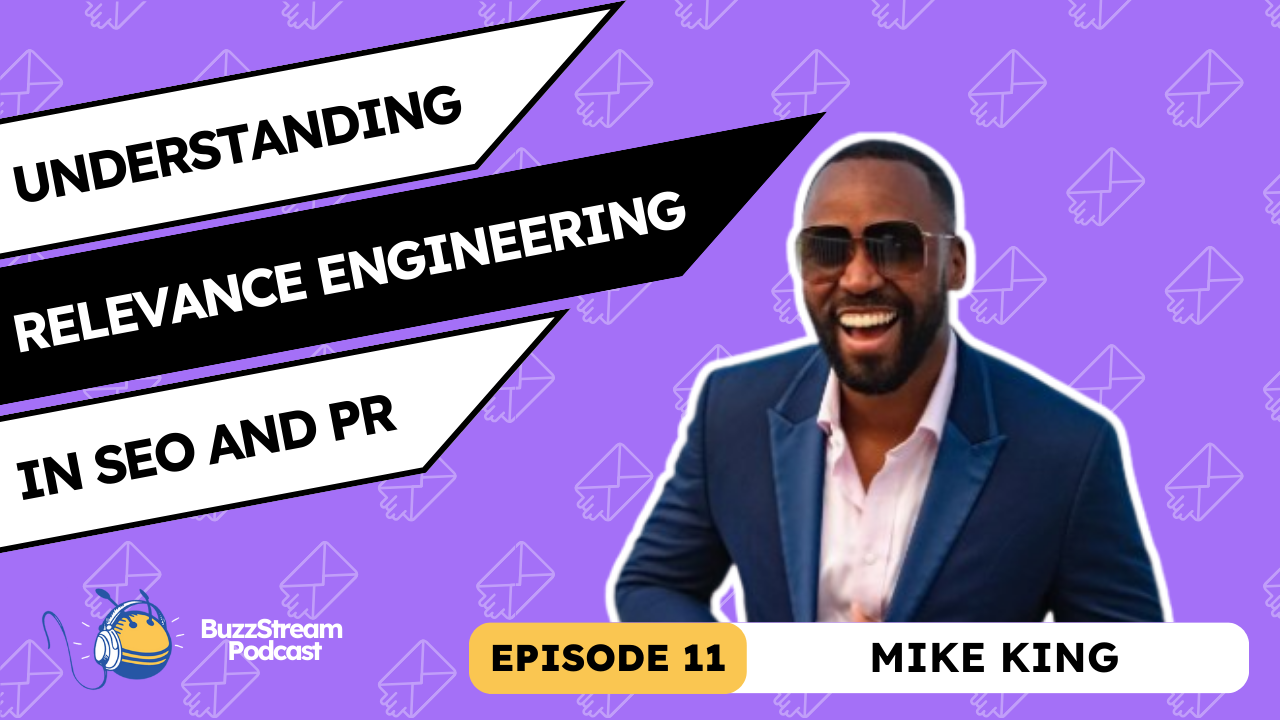
 Check out the BuzzStream Podcast
Check out the BuzzStream Podcast

